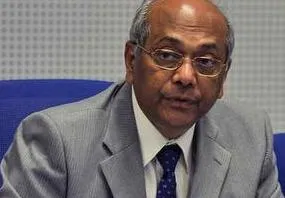
No nuclear energy, no India
The man behind India’s nuclear energy program said the country cannot renounce the use of nuclear energy.
Dr. Srikumar Banerjee, chairman of the Atomic Energy Commission (AEC), emphasized that India cannot forsake nuclear energy without adverse impacts on the economy, environment and human health. He also noted that India’s economic growth will likely decelerate without electricity derived from nuclear power.
“It is important for the public to understand India cannot renounce nuclear power,” Dr. Banerjee said.
Dr. Banerjee made his defense of nuclear power following growing and widespread public opposition to the selection of a site in Bengal for a new nuclear power plant. Adamant local opposition has also delayed a project by the Nuclear Power Corporation to commission two, almost completed 1000MW Russian nuclear reactors in Tamil Nadu state.
Indian anti-nuclear activists have intensified the debate on the safety and economics of nuclear power following last year’s near nuclear catastrophe in Japan.
India has 20 operating nuclear power plants with an installed capacity of about 4780MW. NPC and AEC have made plans to expand this to 20,000MW by 2022 and more than double that a decade later.
Energy analysts believe any slowdown in nuclear power expansion will force India to increase its dependence on imported coal to run its thermal power plants.
“Energy based on imported coal will cost much more than nuclear energy,” Banerjee said.
He noted the increased dependence on coal (whether domestic or imported) for energy will increase India’s carbon dioxide emissions that help trigger climate change. The use of coal also has adverse effects on human health.













 Advertise
Advertise











